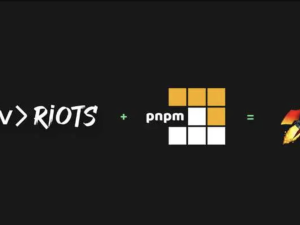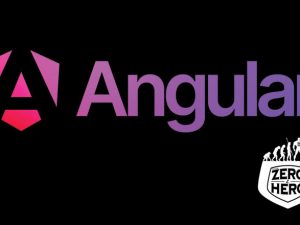Static Site Development with Next.js
- Description
- Curriculum
- FAQ
- Reviews
- Grade
Static Site Development with Next.js is a hands-on course designed to teach developers how to create blazing-fast, scalable, and search-engine-optimized static websites using one of today’s most popular React frameworks—Next.js.
You’ll start with the fundamentals of getting started with Next.js, including its powerful file-based routing system and zero-config setup. As you progress, you’ll master various rendering strategies—focusing especially on Static Site Generation (SSG)—to ensure your content loads instantly and performs well across all devices.
The course walks you through best practices for styling and building reusable components, enabling clean and maintainable design systems. You’ll also learn how to incorporate Markdown-based content and connect to a headless CMS, ideal for content-rich static sites like blogs, documentation, or marketing pages.
You’ll dive deep into SEO essentials, leveraging Next.js’s support for metadata configuration, open graph tags, and accessibility enhancements that ensure your sites are discoverable, performant, and inclusive.
In the final modules, you’ll explore advanced Next.js features such as image optimization, dynamic routing, and incremental static regeneration (ISR). Finally, you’ll learn how to deploy and host your site using platforms like Vercel, Netlify, or traditional hosting environments.
By the end of the course, you’ll be ready to build and launch high-performance static websites that meet the latest web standards for speed, usability, and search visibility.
-
1What is a Static Site Generator?2h
Differences between SSR, SSG, and ISR. Why SSG matters for performance and SEO.
-
2Setting Up Your First Next.js Project2hThis lesson is locked because you haven't completed the previous one yet. Finish the previous lesson to unlock this one.
Scaffold a project, understand folder structure, and run dev server.
-
3Pages and Routing Basics2hThis lesson is locked because you haven't completed the previous one yet. Finish the previous lesson to unlock this one.
Create static routes and understand the file-system-based router.
-
4getStaticProps and getStaticPaths2hThis lesson is locked because you haven't completed the previous one yet. Finish the previous lesson to unlock this one.
Learn the foundation of static rendering with data fetching at build time.
-
5Dynamic Routing for Static Sites2hThis lesson is locked because you haven't completed the previous one yet. Finish the previous lesson to unlock this one.
Use slugs and generate paths for blogs, portfolios, and documentation pages.
-
6Incremental Static Regeneration (ISR)2hThis lesson is locked because you haven't completed the previous one yet. Finish the previous lesson to unlock this one.
Rebuild only updated pages post-deployment with revalidation.
-
7Styling Options in Next.js2hThis lesson is locked because you haven't completed the previous one yet. Finish the previous lesson to unlock this one.
CSS Modules, Tailwind, and styled-components explained and implemented
-
8Reusable Layouts and Components2hThis lesson is locked because you haven't completed the previous one yet. Finish the previous lesson to unlock this one.
Create shared layout wrappers and design systems for static websites.
-
9Image Optimization2hThis lesson is locked because you haven't completed the previous one yet. Finish the previous lesson to unlock this one.
Use
<Image>component for responsive and lazy-loaded images.
-
10Rendering Markdown Content2hThis lesson is locked because you haven't completed the previous one yet. Finish the previous lesson to unlock this one.
Parse
.mdand.mdxfiles to build blogs, docs, and content-driven sites -
11Create a Static Blog2hThis lesson is locked because you haven't completed the previous one yet. Finish the previous lesson to unlock this one.
Generate blog routes, render posts with
remark, highlight code, and paginate. -
12Connect to a Headless CMS2hThis lesson is locked because you haven't completed the previous one yet. Finish the previous lesson to unlock this one.
Use Contentful or Sanity for external content, fetched at build time.
-
13SEO in Static Sites2hThis lesson is locked because you haven't completed the previous one yet. Finish the previous lesson to unlock this one.
Add meta tags, Open Graph data, and structured data with
next/head -
14Sitemap and Robots.txt Generation2hThis lesson is locked because you haven't completed the previous one yet. Finish the previous lesson to unlock this one.
📝 Automatically create SEO files using
next-sitemap. -
15Accessibility (a11y) Best Practices2hThis lesson is locked because you haven't completed the previous one yet. Finish the previous lesson to unlock this one.
Use semantic HTML, skip links, and test with Lighthouse.
-
16Static Middleware and Redirects2hThis lesson is locked because you haven't completed the previous one yet. Finish the previous lesson to unlock this one.
Define redirects, rewrites, and middleware for edge delivery.
-
17Performance Optimization for Static Sites2hThis lesson is locked because you haven't completed the previous one yet. Finish the previous lesson to unlock this one.
Bundle splitting, caching strategies, and lazy loading.
-
18Analytics and Monitoring2hThis lesson is locked because you haven't completed the previous one yet. Finish the previous lesson to unlock this one.
Integrate Google Analytics, Plausible, or Posthog with statically generated pages.
-
19Deploy to Vercel (Native Hosting)2hThis lesson is locked because you haven't completed the previous one yet. Finish the previous lesson to unlock this one.
Connect GitHub, enable preview branches, and monitor builds.
-
20Alternative Hosting (Netlify, GitHub Pages)2hThis lesson is locked because you haven't completed the previous one yet. Finish the previous lesson to unlock this one.
Export static HTML with
next exportand host anywhere. -
21Setting Up CI/CD2hThis lesson is locked because you haven't completed the previous one yet. Finish the previous lesson to unlock this one.
Automate deployment from GitHub with environment variables and preview builds.
-
22Build and Deploy a Static Developer Portfolio or Blog SiteAssignmentThis lesson is locked because you haven't completed the previous one yet. Finish the previous lesson to unlock this one.

-
Fundamentals of Next.js for static site development
-
Static generation and dynamic routing strategies
-
Styling techniques and reusable component architecture
-
Markdown integration and CMS workflows
-
Metadata management for SEO and accessibility
-
Advanced features like ISR, image optimization, and more
-
Best practices for deployment and hosting
Basic understanding of React is recommended, as Next.js is built on top of it.
Archive
Working hours
| Monday | 9:30 am - 6.00 pm |
| Tuesday | 9:30 am - 6.00 pm |
| Wednesday | 9:30 am - 6.00 pm |
| Thursday | 9:30 am - 6.00 pm |
| Friday | 9:30 am - 5.00 pm |
| Saturday | Closed |
| Sunday | Closed |







